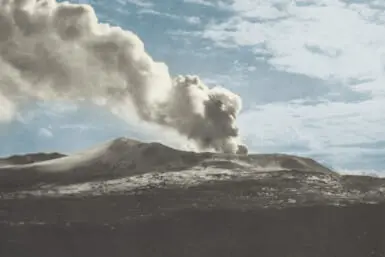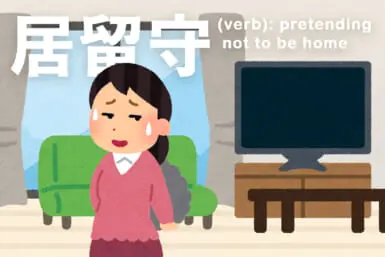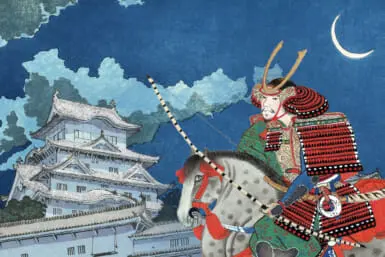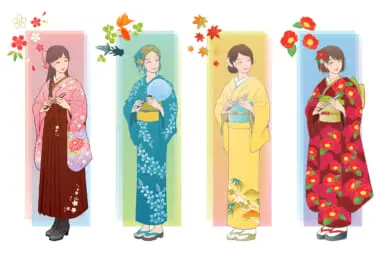Last week, southern Japan suffered greatly as powerful typhoon Haishen struck the region, leaving unprecedented damage. While many Okinawa and Kyushu regions are still recovering from the destruction, this week’s expression, taifu-ikka, quickly popped up on the weather news as soon as the storm calmed down. It alludes to the beautiful clear skies that come after a violent typhoon and is often used in conversations and weather reports.
Taifu-ikka (台風一過)
Meaning: Clear weather after a typhoon has passed, blue skies after a storm, after the rain comes sunshine. It can also mean the sudden calm after a big calamitous event or after an argument is resolved.
Literal translation and kanji breakdown: This is a pretty self-explanatory compound, combining 台風 (typhoon) and 一過 (passing/going past). Many Japanese people miswrite it as 台風一家, which has the same reading, but this “ikka” can mean a family, a home, one’s own style, or even a gang or yakuza family.
Taifu-ikka: The Origins
Since this is such a literal four-kanji compound, you would think there wouldn’t be much of a backstory. But you’d be wrong. As mentioned earlier, ikka means to go past, so we’ll leave that as it is. The origins of taifu, however, are more complicated and encompass a whole slew of theories. Let’s dig in!
In the Heian Period (794-1185), typhoons were (according to The Tale of Genji) called 野分 (nowaki). They were also called 颶風 (gufuu) in weather reports up until the late Meiji Period (1868-1912) when Takematsu Okada (1874-1956), a meteorologist, coined the term 颱風 (taifu). (The current spelling 台風 has only been in common use since 1946.) One theory suggests that he transliterated the English word typhoon to do this, but other sources dispute this, saying that pronunciation is more likely taken from the Taiwanese and China’s Fujian Province word “taifun.”
Other suggested origins for the word taifu are not as clear-cut but date as far back as the 9th and 10th centuries when India and China traded frequently. The Arabic word for spinning around or going around in circles, “tufan,” may have influenced a transliterated version in west Asia. Finally, in Greek mythology, the monstrous Typhon (also spelled Typhaon or Typhoeus) was the father of dangerous winds and a personification of volcanic power, but there are no hard and fast theories on how this connects to other versions of typhoons in Asia.
Taifu-ikka: Related Expressions
- 暴風怒濤/ Boufudotou: Literally, violent winds and raging waves, it can mean stormy and turbulent times as well as stormy seas.
- 台風の目/ Taifu no me: Eye of the typhoon
- 嵐の前の静けさ/ Arashi no mae no shizukesa: The calm before the storm
- コップの中の嵐/ Koppu no naka no arashi: A storm in a teacup
- 花に嵐/ Hana ni arashi: Literally, a storm to flowers, it’s a metaphor meaning that good or beautiful things will often be disturbed. It comes from the fact that storms or heavy rain will often hit just as cherry blossoms are in full bloom. 花に風/hana ni kaze (a wind to flowers) is another version of this.
Using “taifu-ikka” in a sentence
いい天気ですね!これが台風一過ということだ。Ii tenki desu ne! Kore ga taifu-ikka to iu koto da. What great weather! This is what they mean by the brilliant weather you get after a storm, eh?
九州 台風一過の青空 日中は残暑が戻る Kyushu: Taifu-ikka no aozora, nicchu wa zansho ga modoru. Kyushu: Blue skies after the typhoon has passed, a return to the lingering summer heat. (This is an actual news headline published after the typhoon)
いや〜、台風一過のような状況だったオフィスがようやく落ち着いたよ。ほっとしました。Iyaa, taifu-ikka no you na joukyou datta office ga youyaku ochitsuita. Hotto shimashita. Ah, it was like a storm had come and gone through the office but it’s finally settled. I’m relieved.
Want more? Follow our weekly Yojijukugo Japanese Idiom series, published every Friday. Learn the meaning of “chinpunkanpun” here and “yudantaiteki” here. For an article on how to prepare in case of a typhoon, see here.









